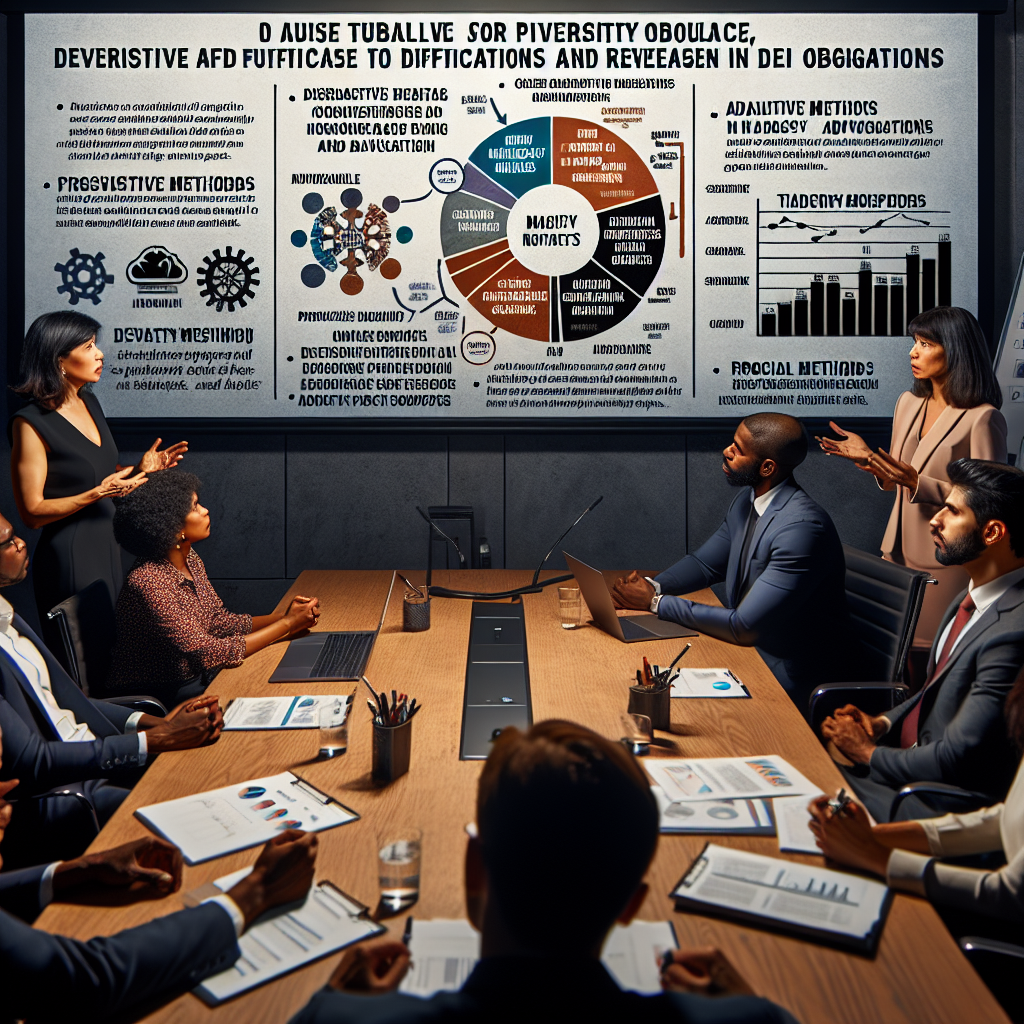Understanding the Impact of DEI Contract Terminations in the Government Contracting Landscape
The recent rollback of Diversity, Equity, and Inclusion (DEI) requirements has led to the cancellation of several contracts focusing on workplace diversity initiatives. This shift in policy is causing significant financial strain for nonprofits and businesses that had secured federal contracts aimed at promoting DEI. In this article, we will explore the implications of these terminations, the challenges faced by organizations, and potential strategies for adaptation in the evolving landscape of government contracting.
The Current Landscape of DEI in Government Contracting
Background on DEI Initiatives
Diversity, Equity, and Inclusion initiatives have been designed to ensure that marginalized groups in the workforce receive fair opportunities and representation. For many organizations, especially nonprofits, federal contracts for DEI initiatives have provided crucial funding for programs that support underrepresented communities. These efforts have not only benefited individual organizations but have also aimed to foster a more inclusive workplace culture across sectors.
Recent Policy Changes
With the recent rollback of DEI requirements, numerous contracts aimed at promoting workplace diversity have faced termination. This policy shift generally stems from a changing political climate and new leadership priorities, which has raised questions about the future of such initiatives. Organizations heavily reliant on federal contracts for DEI programming are now confronted with uncertain futures.
The Effects of DEI Contract Terminations
Financial Challenges
Organizations that previously secured federal contracts for DEI initiatives are facing acute financial challenges. The cancellation of contracts means a loss of expected revenue streams, which can jeopardize project funding and long-term financial stability. Nonprofits, in particular, operate on tight budgets and rely upon federal funds to support their programming and operational costs.
Operational Disruptions
In addition to financial woes, organizations are also experiencing operational disruptions. Staff layoffs, program cancellations, and potential bankruptcies are on the rise as the workforce adjusts to sudden funding shortfalls. This instability can affect not just the contracted organizations but also the communities and individuals they serve, diminishing the developmental impact of DEI initiatives.
Strategies for Adaptation
Diversify Funding Sources
With federal contracts becoming more uncertain, organizations should explore diversifying their funding sources. This could mean seeking state-level contracts, private sector partnerships, or grants from philanthropic organizations that still prioritize DEI initiatives. By reducing reliance on federal contracts, organizations can enhance their financial resilience.
Reassess Project Goals
Organizations should take this opportunity to reassess their project goals and consider pivoting their focus. They may integrate DEI elements into broader initiatives, aligning with the values and missions that are still relevant to the communities they serve. This adaptability may open up new avenues for funding that are aligned with current policy frameworks.
Looking Ahead in Government Contracting
Monitoring Policy Changes
It is vital for organizations engaged in government contracting to keep a close watch on policy changes at both the federal and state levels. Being proactive in understanding the shifting political climate can provide organizations with the foresight needed to adapt their strategies accordingly.
Invest in Advocacy and Awareness
Organizations can also invest efforts in advocacy to promote the value of DEI initiatives in government contracting. By making the case for the benefits of diversity and inclusive practices, nonprofits and businesses can work to influence future policy decisions and secure funding opportunities.
Conclusion: Navigating the New Frontier of DEI Contracts
The rollback of DEI requirements presents significant challenges for nonprofits and businesses that relied on federal contracts to support diversity initiatives. As organizations navigate these turbulent waters, it is essential to adopt adaptive strategies that incorporate broader funding prospects, operational shifts, and advocacy efforts. While the future of DEI in government contracting remains uncertain, proactive measures can help organizations maintain their commitment to workplace diversity and build sustainable practices that foster inclusivity in the long run. Staying informed, agile, and connected will be crucial as the landscape continues to evolve.

